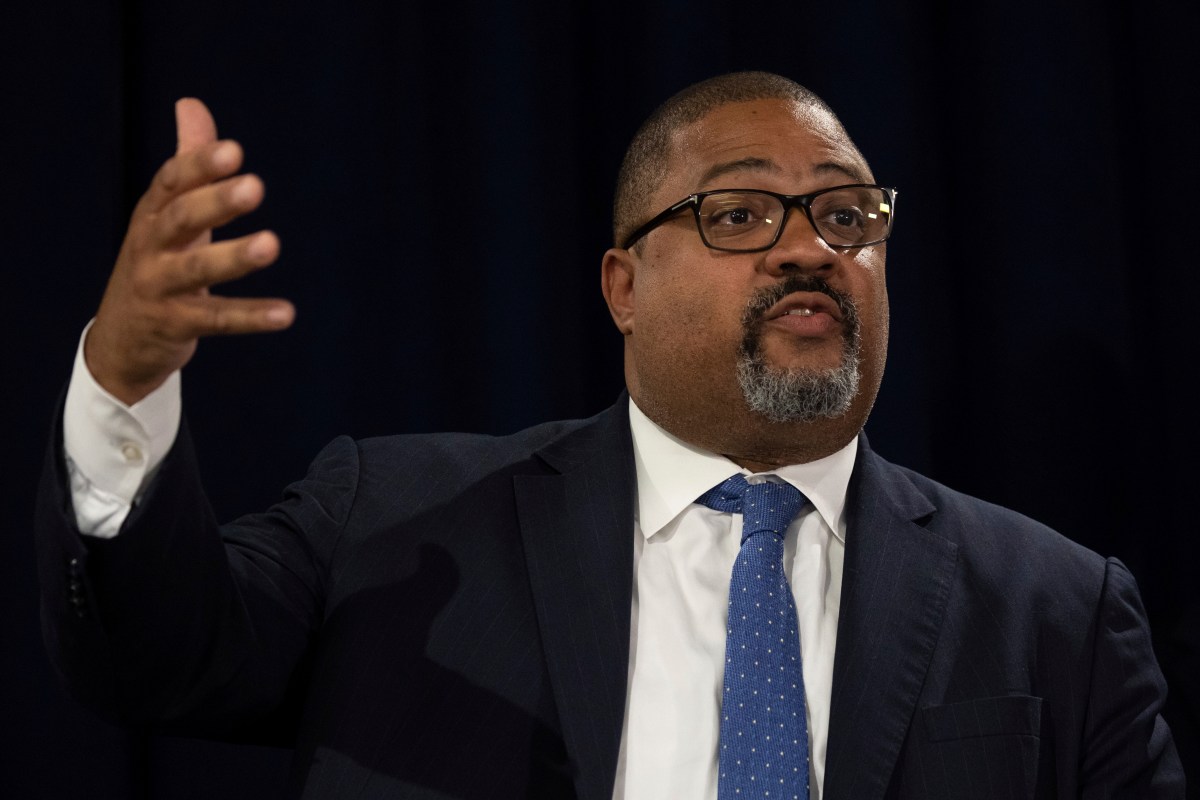Donald Trump is being hit where it hurts. With 30 companies unwilling to help him post bond, he may face forfeitures or have to liquidate assets at fire sale prices to pay the hundreds of millions he owes in damages.
While the outcome of those civil cases is satisfying, I’m more focused on the criminal charges he faces. Until recently, I had planned to go to Washington to cover the Trump Coup Trial. But with the Supreme Court shamelessly delaying that federal prosecution, my attention has now turned to New York’s juicy Trump Hush Money Trial, where a jury this spring will determine whether the Orange Monster broke the law and won the 2016 election by covering up his secret payments to porn star Stormy Daniels.
After jury selection begins in April, we’re looking at the first criminal trial of a U.S. president in American history. Because the trial will not be televised, you won’t actually be able to see it. But I will. I’m credentialed through the Washington Monthly to be there every day and will report to you on what’s important—starting now.
Last week, the trial was delayed—probably for a few weeks—pending a hearing about the mysterious release of thousands of pages of documents from federal prosecutors who had pursued the hush money case but declined to prosecute Trump. It’s still unclear if anything in there will help either the Manhattan DA’s prosecution or the Trump defense.
In the meantime, March 18 was a big day in this case—a big win for Manhattan District Attorney Alvin Bragg and a big loss for Trump. Juan M. Merchan, a New York State judge, is showing again that he is a careful, by-the-book jurist who will take no legal hooey from the former president’s lawyers. He granted almost all of the District Attorney’s motions and denied almost all of Trump’s. These were pre-trial motions in limine (Latin for “at the threshold”), and they brought 22 pages of well-supported rulings from the judge on what would be allowed in evidence.
Rulings on Pre-trial Motions from the Prosecution
Rulings on Pre-trial Motions from the Defense
Judge Merchan ruled that Trump’s lawyers will not be allowed to:
- Compare this prosecution to that of former Senator John Edwards, the North Carolina Democrat who was acquitted in a similar case.
- Argue selective prosecution (the District Attorney routinely brings these kinds of business fraud cases).
- Argue that the District Attorney is using a “novel” interpretation of the law, which many anti-Trump legal experts believe to be true.
- Refer to a decision by the Federal Election Commission (then dominated by Republicans) to clear Trump.
- Refer to federal prosecutors’ concerns about the credibility of former Trump henchman Michael Cohen, the key prosecution witness in the case, or their decision to drop their investigation.
- Introduce into evidence a book by Mark Pomerantz, a former top prosecutor in the District Attorney’s office, that criticizes the Hush Money prosecution.
- Invoke the advice-of-counsel defense, Trump’s familiar excuse that he was just listening to his lawyers and, therefore, isn’t guilty.
These arguments are all gone and unlikely to be restored on appeal.
I’m just getting started here with Trump’s pre-trial losses. Under longstanding New York State law, the so-called Molineux standard, evidence that involves uncharged acts is inadmissible. But the judge pointed to well-established exceptions that will allow:
- Testimony about a key meeting in Trump Tower between Trump, Cohen, and publisher David Pecker, the former CEO of American Media that owned the National Enquirer, the paper that engaged in catch-and-kill operations to buy exclusive stories that might embarrass Trump and then not run them. Also off-limits are Pecker’s business records and those of Trump’s convicted accountant, Allen Weisselberg.
- Evidence pertaining to the alleged purchase of information from Dino Sajudin (a doorman).
- The alleged extramarital affair between the defendant and Karen McDougal.
- The alleged sexual encounter with Stephanie Clifford (Stormy Daniels).
- The alleged publication of negative information about Defendant’s opponents.
In other words, practically, District Attorney Bragg’s whole case is admissible.
Judge Merchan rebuked the Trump team for motions meant to reargue questions he had decided earlier. (“A waste of this Court’s valuable resources.”) Most significant: The DA now has permission to argue in court for elevating the case from a squalid tabloid dispute into a historical case about whether Trump sought to influence the outcome of the 2016 election improperly.
But before we get too elevated here, let’s remember that Trump apparently paid the hush money (laundered through Cohen) when he was on the ropes over the “Access Hollywood” tape just weeks before the election. In an earlier ruling, the judge said the tape itself was inadmissible, but this week, he denied a defense motion preventing any testimony about it.
So we’ll see plenty of references to the former president of the United States denying that he had sex with Stormy Daniels while being reminded that he said he liked to grab women by their private parts.
It ain’t overthrowing the government. It ain’t stealing classified documents. But it’ll do.



